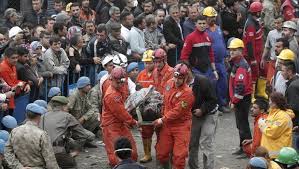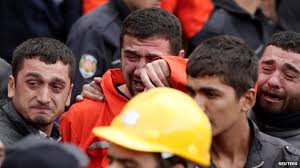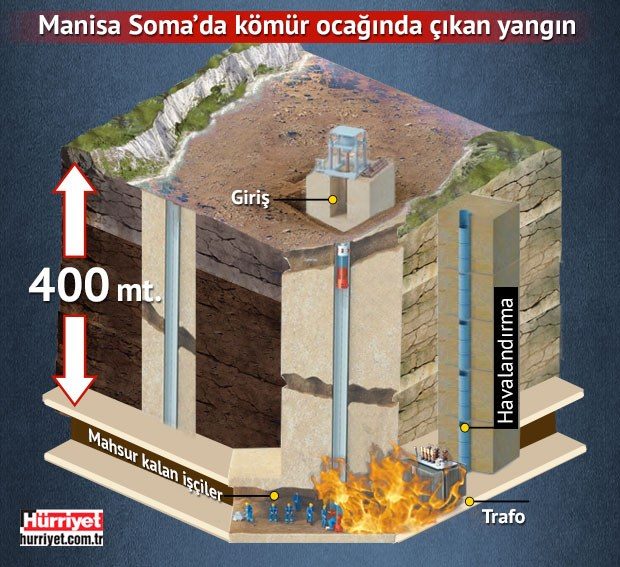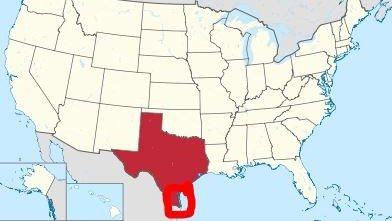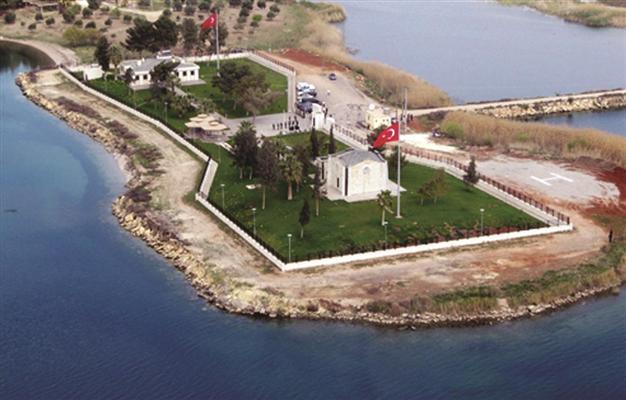“Most of the things one imagines in hell are there—heat, noise, confusion, darkness, foul air, and, above all, unbearably cramped space.”
“Watching coal-miners at work, you realize momentarily what different universes different people inhabit. Down there where coal is dug it is a sort of world apart which one can easily go through life without ever hearing about.”
George Orwell, The Road to Wigan Pier, 1937
Soma, a small town near Manisa in western Turkey. By the Aegean Sea, a beautiful place, if you don’t have to be a coal miner or love one.
It’s now an ant swarm. It ebbs and flows around the human conveyor belt that runs from the endless rows of ambulances and the mouth of the lignite mine. Lignite is the poorest quality coal useful mostly for power generating plants. And the people in Soma are poor too, but in a different sense, a tragic sense. The stretchers bearing the living, the dead and the dying beat an endless track from the suffocating depths to the white ambulances. The bearers stack their loads in the back of the ambulances like well-cut logs. And off they go, back to the pit. And the ambulances crawl through the swarm to the hospital whose morgue is overflowing. It’s a simple, deadly rhythm now in its twentieth hour. Most of the women are covered. They weep alone in small groups.
A transformer blew up deep in the mine. The electricity failed. No elevators. A fire down below. No way out. No air, just carbon monoxide. The death count rises. It’s now at 205, but it’s more like 250. (In the interest of accuracy. as of 2:42 pm 14 May 2014 the “official” count is 232…now 238, now 240.) There are hundreds still buried hundreds of meters underground. The fire still burns. The deaths will be in the millions because every time one sees a stretcher with a limply swinging foot, or covered over, one dies a little. And there are more than 70 million of us living here, watching this absurd tragedy. They just brought out a 15 year-old boy, dead. Turkey’s, rather the Turkish government’s treatment of children is abysmal. One weeps thinking about all of this. And then, if one is human, one gets angry. How can all these poor people die at work? The record for coal mining deaths is 263 at Zonguldak in 1992. It seems in easy reach since so many are still unaccounted for and time inexorably wears on.
Not too many years ago, five or six, there was another mine disaster, small compared to Soma, “only” 130 died. The television channel ran some file film of a miner underground. And next to the miner what should appear but a canary in a cage. Jesus, I shouted, this stuff disappeared a hundred years ago! Well, it would be nice, but extremely naïve, to think so.
For this is Turkey. And here coal mining safety is a joke. One disaster after another comes to the mining families of this saddest of countries. And again neighborhoods are devastated by the massacre of its men. Except for China, Turkey has the worst coal mining safety record in the world. This industry like most others has been privatized by the government. That means cut costs to maximize profits. That means low wages. That means Soma Group, the mining company, operates uncontrolled and unregulated despite all the official blather. But why shouldn’t it? The Turkish government operates the same way and no one does anything about it.
So who is at fault? Easy. Soma Mining is owned by Alp Gürkan. In a 2012 interview, Gürkan said the company had managed to drop the cost of coal to $24 per ton from $130 before privatization. How grand! Yes, grand, indeed. How did he do it? Well, he hired subcontractors “for hard work with low salaries” thus undercutting union workers organized by Maden-İş. But his master stroke of “genius” seems to be Gürkan’s decision to have his company simply manufacture the electric transformers instead of importing them. And it was one of these “home-made” transformers that caused this human catastrophe, this mass industrial murder, this genocide of the working class. So it seems clear that prima facie evidence of criminal negligence points toward one Alp Gürkan, Chairman of the Board. The police can find him for purposes of preliminary investigation at: Soma Holding A.Ş, Lale Sokak No:5, Levent – İstanbul.
There is also another material witness and perhaps a co-conspirator. On 29 April Prime Minister Tayyip Erdoğan’s ruling Justice and Development Party rejected a demand for a parliamentary investigation regarding safety in the Soma mines. Why was this petition refused? Does it have to do with the hoses he has everywhere? That refusal was just two weeks ago! Question him! Erdoğan can be found somewhere in Ankara. He has yet to appear at Soma. He, like Godot, may never come. It would be good.
As I write, the students in Ankara are protesting this horrific tragedy. Everything is normal, for Turkey. The police are gassing as usual, shooting canisters directly at them. The cops are chasing them through a beautiful pine forest. TOMA and helicopters are on the scene. Beatings will follow. Students of Ankara unite! You have nothing to lose but your brains.
The air is as heavy as lead.
No more words…
James (Cem) Ryan
Istanbul
14 May 2014
EXCEPT…
HUKUMET İSTİFA!


